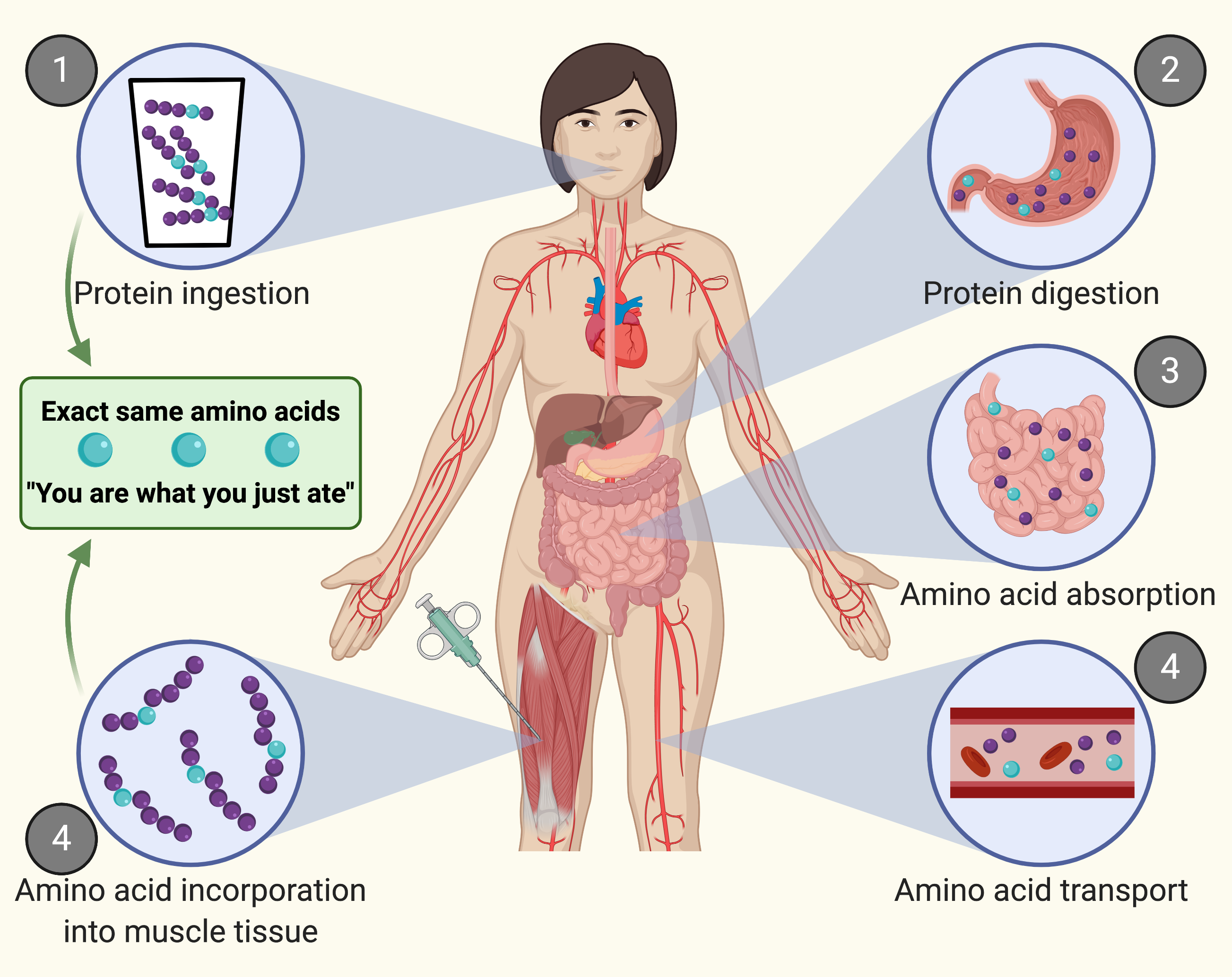The Impact of Dietary Protein Intake on Longevity and Metabolic Health
Introduction
In the quest for a long, healthy life, the role of dietary protein cannot be overstated. This article delves into the impact of dietary protein intake on longevity and metabolic health, shedding light on the intricate relationship between the two.
The Role of Protein in the Human Body
Protein is a vital component of every cell in the human body. It’s involved in various functions, from building and repairing tissues to making enzymes and hormones.

Protein and Cellular Function
Protein plays a crucial role in cellular function and structure. It’s involved in cell signaling, immune responses, and the regulation of cell growth and differentiation.
Protein and Metabolic Health
Protein is essential for maintaining metabolic health. It aids in the regulation of blood sugar levels, supports muscle mass, and contributes to satiety, which can help manage body weight.
Dietary Protein and Longevity: The Connection
There’s a growing body of evidence suggesting a link between dietary protein intake and longevity. But how does this work?
Protein Intake and Aging
Aging is a complex process influenced by various factors, including diet. Some research suggests that a moderate protein intake can promote healthy aging and extend lifespan.
The Role of Amino Acids in Longevity
Amino acids, the building blocks of protein, have been linked to longevity. Certain amino acids may promote longevity through pathways related to insulin signaling and oxidative stress.
The Impact of Different Protein Sources on Longevity and Metabolic Health
Not all proteins are created equal. The source of protein in your diet can significantly impact your longevity and metabolic health.
Animal Protein vs. Plant Protein
The debate between animal and plant protein is ongoing. Each has its pros and cons, and their impact on longevity and metabolic health can vary.
The Role of Whey Protein in Longevity and Metabolic Health
Whey protein, a high-quality protein derived from dairy, has been linked to various health benefits. It’s not just for bodybuilders; it could also contribute to longevity and metabolic health.
Optimizing Protein Intake for Longevity and Metabolic Health
Knowing the impact of dietary protein on longevity and metabolic health, how can you optimize your protein intake?
Balancing Protein Intake
Balancing protein intake is crucial. Both protein deficiency and excess can have detrimental effects on health and longevity.
The Role of Protein Quality
Protein quality matters. High-quality proteins provide all essential amino acids and are more efficiently used by the body.
Timing of Protein Intake
The timing of protein intake can influence its effects on the body. Consuming protein at certain times of the day may have benefits for metabolic health and longevity.
The Impact of Dietary Protein Intake on Longevity and Metabolic Health: The Research
Let’s delve into the research surrounding dietary protein intake, longevity, and metabolic health.
Epidemiological Studies on Protein Intake and Longevity
Epidemiological studies provide valuable insights into the relationship between protein intake and longevity. Let’s explore some key findings.
Clinical Trials on Protein Intake and Metabolic Health
Clinical trials offer more controlled observations of the effects of protein intake on metabolic health. Here are some significant results.
Future Directions in Protein, Longevity, and Metabolic Health Research
The field of protein, longevity, and metabolic health research is rapidly evolving. What does the future hold?
Frequently Asked Questions
What is the recommended daily intake of protein?
The recommended daily intake of protein varies depending on age, sex, and level of physical activity. On average, adult men and women should aim for 56 grams and 46 grams of protein per day, respectively.
Can too much protein be harmful?
While protein is essential for health, consuming too much can lead to health issues such as kidney damage, especially in people with pre-existing kidney conditions.
Is plant protein as good as animal protein?
Plant and animal proteins have different amino acid profiles. While most animal proteins are complete proteins, most plant proteins are not. However, a varied plant-based diet can provide all essential amino acids.
How does protein intake affect metabolism?
Protein intake can boost metabolism because it has a high thermic effect, meaning your body uses more energy to digest it compared to fats and carbohydrates. It also helps maintain muscle mass, which is metabolically active.
What is the link between protein and longevity?
Some research suggests that moderate protein intake, especially plant-based protein, may promote healthy aging and extend lifespan. However, more research is needed to fully understand this relationship.
What role does whey protein play in metabolic health?
Whey protein can support metabolic health in several ways. It can help maintain muscle mass, support weight management, and improve blood sugar regulation.
Conclusion
The impact of dietary protein intake on longevity and metabolic health is a fascinating and complex topic. As research continues to evolve, it becomes increasingly clear that protein, in its many forms, plays a vital role in our health and lifespan. Whether it’s a hearty steak, a bowl of lentils, or a whey protein shake, the protein we consume can significantly influence our journey towards a long, healthy life.




:max_bytes(150000):strip_icc()/hydrocodone-withdrawal-4582579_FINAL-26af9601068c4a79860c1e523d48ed73.png)
